Unlocking Potential: The Lucrative World of Subprime Car Title Loans
Introduction:
In today’s financial landscape, a growing segment often goes unnoticed yet holds significant profit potential – the subprime car title loan market.
This industry caters to a unique customer base: financially challenged individuals in the United States facing sudden financial emergencies and limited access to traditional credit sources.
As an entrepreneur, diving into this realm offers a chance to tap into a market with robust demand and high returns.
Understanding Car Title Loan Market:
Subprime borrowers, typically those with credit scores below 620, often urgently need funds.
Traditional banking systems might be inaccessible due to their credit history, but their needs remain.
Here lies the opportunity for car title loan lenders. These lenders provide a critical financial lifeline by offering short-term loans using a vehicle title as collateral.
Title Loan Industry Statistics and Profitability:
Title Loan Market Size:
The subprime auto loan market has expanded. As of this year, the industry was valued at $15 billion, showcasing a growth rate of 8% from the previous year.
Interest Rates:
Car title loans come with high-interest rates, averaging 25% to 50% monthly. This rate reflects the increased risk but also translates into higher profits for lenders.
Repayment and Defaults:
The average loan term is about 30 days, with many borrowers extending their loans. While defaults do occur, the collateral nature of the loan mitigates losses, as lenders can repossess and sell the vehicle.
Trends and Opportunities:
Digital Lending Platforms: Digital lending has revolutionized the car title loan industry. Establishing an online presence and mobile application can attract a broader customer base and streamline operations.
Regulatory Landscape: Staying abreast of state-specific regulations is crucial. Some states have more lenient laws, making them ideal starting points for new businesses.
Partnerships: Collaborations with used car dealerships, repair shops, and insurance companies can create referral networks, boosting customer acquisition.
Risk Management:
While lucrative, this industry requires astute risk management. Implementing thorough credit and income assessments, even in the subprime market, can reduce the risk of defaults. Additionally, diversifying loan offerings can spread out risk.
Serving the Community:
Beyond profitability, car title loan companies can play a pivotal role in community support. These companies can foster goodwill and long-term customer relationships by offering financial solutions to those in dire need.
Conclusion:
The subprime car title loan industry presents a unique opportunity for entrepreneurs.
With the right approach, it’s possible to achieve substantial profitability while providing a valuable service to a segment of the population often overlooked by traditional financial institutions.
As we progress, this industry stands poised for growth, powered by technological advancements and an ever-present demand.
Call to Action:
For entrepreneurs looking to make a mark in the financial sector, the car title loan industry is a goldmine waiting to be explored.
With its combination of high demand, significant returns, and the opportunity to make a positive impact, it’s worth considering.
Ready to jump in the Pool?
Grab your copy of our "bible!"
Special “Inflation Fighter Discount!”
Newly revised & updated.
Take advantage of our 2024 temporary price reduction!
Unlock the secrets to extraordinary profits in the financial sector with our comprehensive course on starting a car title loan business.
Tailored specifically for ambitious entrepreneurs, this course offers a deep dive into the lucrative world of subprime lending.
From navigating the regulatory landscape to implementing cutting-edge digital platforms, you’ll learn everything you need to build a thriving, recession-proof business.
Our expert instructors, with years of industry experience, will guide you through proven strategies for risk management, customer acquisition, and maximizing returns.
Whether new to the financial industry or looking to diversify your portfolio, this course is your key to unlocking a realm of high-profit potential, providing step-by-step instructions and insider knowledge to establish a successful car title loan enterprise.
Join us and transform your entrepreneurial vision into a reality, setting the stage for unparalleled financial success in a market with ever-growing demand.
4 WAYS I CAN HELP YOU
- Grab a copy of our “bible:” Learn More
- Brainstorm: Learn More
- The Business of Lending: Learn More
- Free Bi-Monthly Newsletter: Learn More

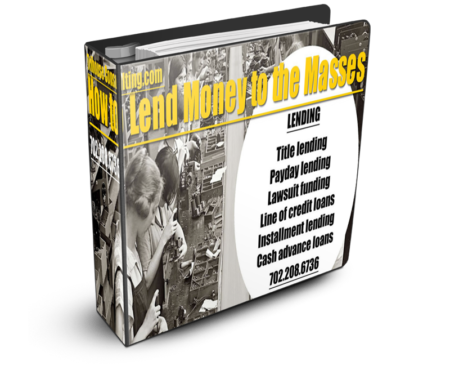
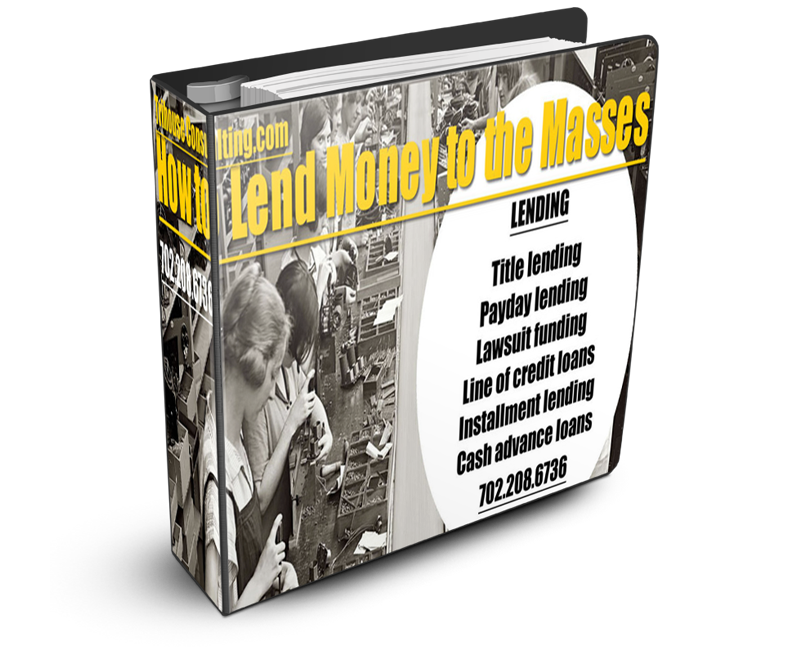
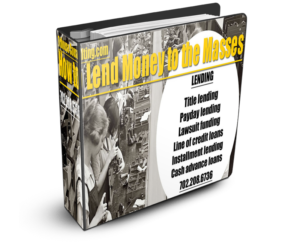



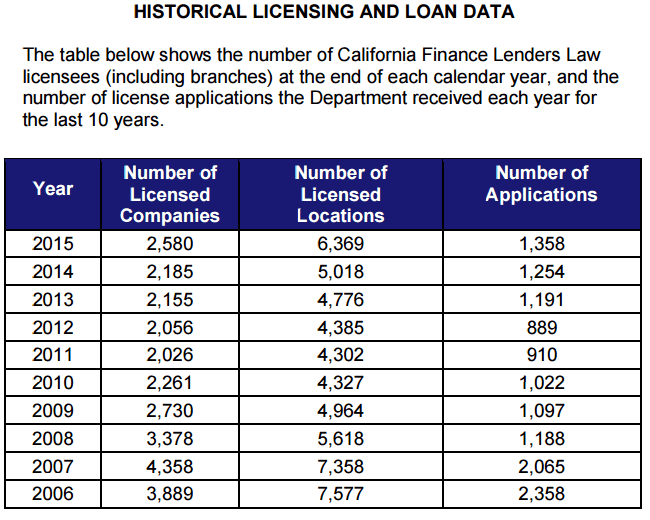


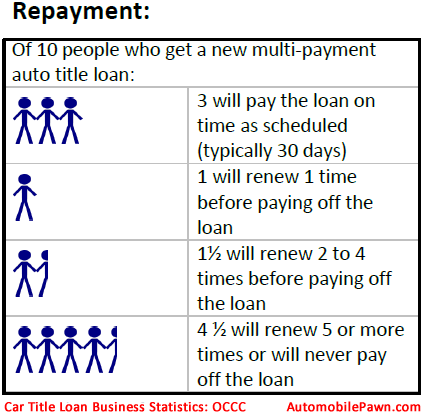 Basically, car title loan borrowers repayment schedules breakdown like this:
Basically, car title loan borrowers repayment schedules breakdown like this: